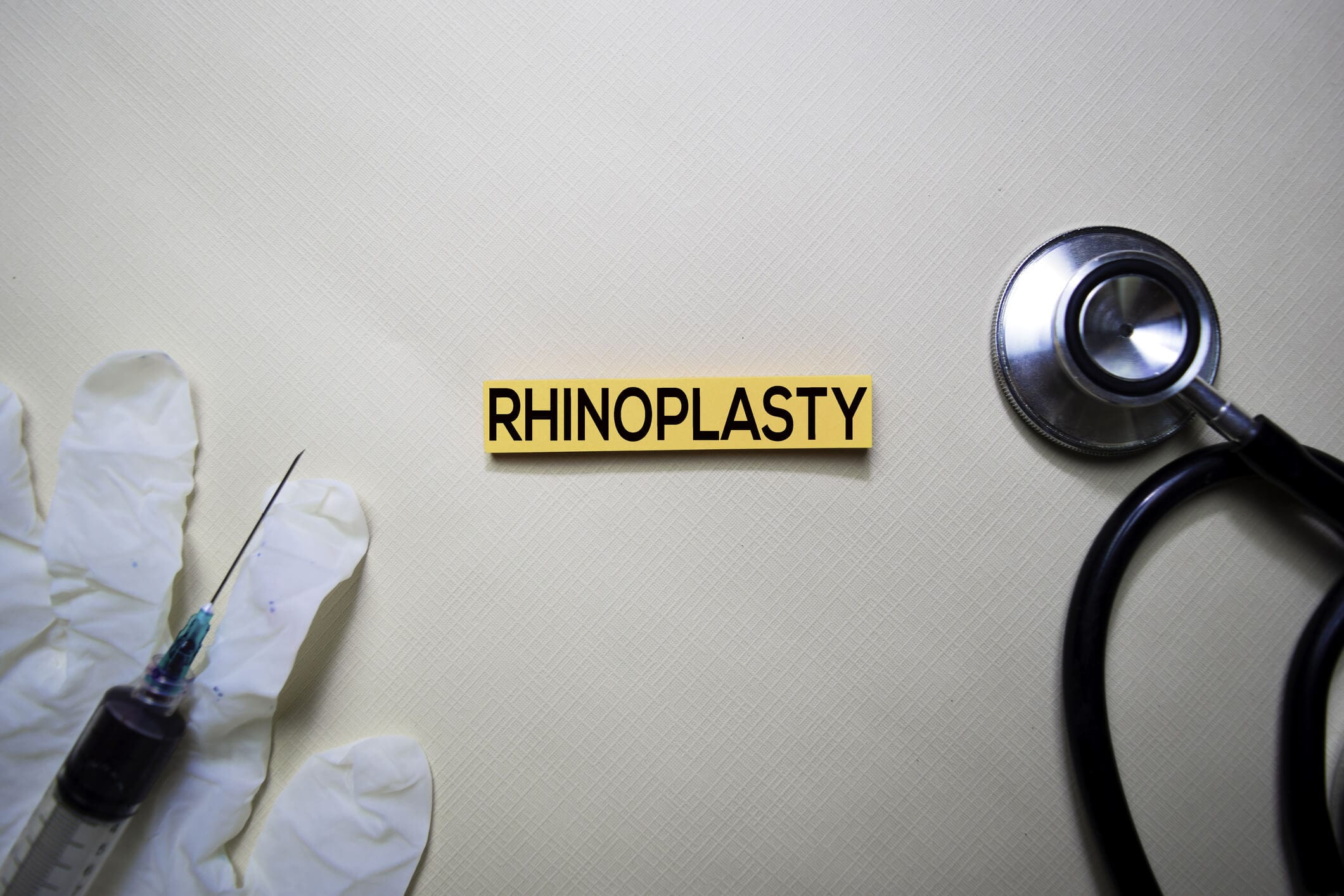Rhinoplasty Aftercare: Foods To Eat & Foods To Avoid
Rhinoplasty, a nose job, is a surgical procedure that reshapes the nose for aesthetic or functional purposes. The recovery process following rhinoplasty is crucial, as it determines the surgery’s success and the patient’s overall satisfaction with their new appearance. After the procedure, many individuals experience swelling, pain, and discomfort, particularly around the nose and face. Thus, understanding the proper aftercare, including using ointments for healing and protection of the surgical area, and adhering to your doctor’s instructions is paramount.
This comprehensive guide will explore the essential aspects of rhinoplasty aftercare, including foods to eat and avoid, tips for managing recovery symptoms, and the importance of hydration and nutrition in the healing process.
The Importance of Aftercare in Rhinoplasty Recovery
After undergoing rhinoplasty surgery, the body goes through various stages of healing. This period is critical for reducing complications, minimizing swelling and bruising, and achieving the desired results. Aftercare is not just about managing pain; it encompasses a holistic approach to ensuring your body has the necessary resources to heal effectively. This includes proper bandage care, maintaining head elevation to reduce swelling, ensuring adequate breathing, and prioritizing quality sleep during recovery.
- Healing Process: The healing process after rhinoplasty can take several weeks to months. Patients may notice changes in their nose’s appearance during this time as swelling gradually subsides and bruising fades. Having realistic expectations and understanding that the final results may take time to be visible.
- Nutritional Support: A well-balanced diet is a critical factor in your recovery. The body requires various nutrients to promote healing, reduce inflammation, and improve overall health. Proper nutrition can also help alleviate symptoms such as nausea and fatigue that some patients experience after surgery.
- Instructions from Your Surgeon: Your surgeon will provide specific aftercare instructions tailored to your needs. Following these guidelines is essential to prevent complications such as bleeding or infection and to ensure optimal healing.
Foods To Eat After Rhinoplasty
A well-thought-out diet can significantly impact your recovery experience. After rhinoplasty, focusing on nutrient-rich foods that promote healing and reduce inflammation is advisable. Here’s a comprehensive list of foods to incorporate into your post-operative diet:
After surgery, you may experience discomfort, especially when chewing. Soft foods are easy to consume and gentle on the mouth and nose. Consider adding the following to your diet:
- Yogurt: Creamy and easy to eat, yogurt is an excellent source of protein and probiotics, which can aid digestion and promote overall health.
- Mashed Potatoes: Soft and comforting, mashed potatoes provide carbohydrates and can be flavored in various ways to suit your taste.
- Smoothies: Blend fruits and vegetables into smoothies for a nutrient-dense, easy-to-drink meal. Add protein powder for extra support.
High-Protein Foods
Protein is crucial for tissue repair and recovery. Incorporating high-protein foods can help support healing:
- Lean Meats: Chicken, turkey, and fish are excellent lean protein sources. Cook them until tender to make them easier to chew.
- Eggs: Rich in protein and easy to prepare, eggs can be scrambled, boiled, or made into omelets.
- Beans and Legumes: For plant-based protein, consider adding lentils, chickpeas, or black beans to your meals. They are also high in fiber, which is beneficial for digestive health.
Hydrating Foods
Staying hydrated is essential for recovery, as dehydration can increase swelling and discomfort. Hydrating foods can help you maintain fluid levels:
- Cucumbers: With their high water content, cucumbers are refreshing and can be easily added to salads or eaten as a snack.
- Watermelon: Another hydrating fruit, watermelon is sweet, juicy, and packed with vitamins.
- Soups and Broths: Clear broths and soups are hydrating and easy to consume. They can also provide warmth and comfort during recovery.
Vitamin-Rich Foods
Vitamins play a significant role in promoting healing and reducing inflammation. Focus on foods rich in vitamins A and C:
- Carrots: Carrots are high in vitamin A, support skin health, and can be enjoyed raw, cooked, or in soups.
- Sweet Potatoes: Packed with vitamins and antioxidants, sweet potatoes can be baked or mashed for a delicious side dish.
- Citrus Fruits: Oranges, grapefruits, and lemons are rich in vitamin C, which is essential for collagen production and tissue repair.
Anti-Inflammatory Foods
Inflammation is a natural part of the healing process, but certain foods can help minimize excessive inflammation:
- Berries: Blueberries, strawberries, and raspberries are rich in antioxidants that can help reduce inflammation and promote healing.
- Fatty Fish: Salmon, mackerel, and sardines contain omega-3 fatty acids known for their anti-inflammatory properties. They can be grilled or baked for a nutritious meal.
- Nuts and Seeds: Almonds, walnuts, and flaxseeds are excellent sources of healthy fats and can be sprinkled on yogurt or salads.
Foods To Avoid After Rhinoplasty
While there are many foods to enjoy after rhinoplasty, some should be avoided to ensure a smooth recovery. Certain foods and habits can interfere with the healing process, leading to complications such as increased swelling, bruising, or infection. Here’s a list of foods to steer clear of:
Spicy Foods
Spicy foods can irritate the nasal passages and lead to congestion. They can also increase blood flow, which may exacerbate swelling and prolong recovery. Avoid dishes seasoned with hot peppers, chili powder, or other spicy ingredients.
Hard or Chewy Foods
Foods that require a lot of chewing can strain your mouth and nose, causing discomfort. It’s best to avoid:
- Steak: Tough cuts of meat can be difficult to chew and may cause strain on your jaw and face.
- Raw Vegetables: Crunchy vegetables can be hard to eat and may lead to discomfort while chewing.
Alcohol
Alcohol consumption should be avoided during the recovery period. Alcohol can thin the blood, increasing the risk of bleeding and complications. Additionally, it can dehydrate your body, hindering the healing process. Abstaining from alcohol is crucial to ensure a successful recovery.
Caffeinated Beverages
Caffeine can lead to dehydration, which is detrimental during recovery. It may also elevate your blood pressure, stressing your healing body. Consider replacing coffee and caffeinated sodas with herbal teas or decaffeinated alternatives.
Sugary Foods
Foods high in sugar can promote inflammation and hinder the healing process. Limit your intake of sugary snacks, sodas, and desserts. Instead, choose healthier alternatives like fruit or yogurt for a sweet treat.
Essential Rhinoplasty Aftercare Tips
In addition to focusing on nutrition, there are several essential aftercare tips to ensure proper healing after rhinoplasty:
Stay Hydrated
Hydration is vital for recovery. Drinking plenty of water helps maintain fluid levels, supports circulation, and aids in flushing out medications. Aim for at least 8-10 glasses of water daily, and consider adding hydrating foods to your meals.
Rest and Elevate Your Head
Rest is crucial during the initial recovery period. Elevating your head while sleeping can help reduce swelling and pressure on your nose. Use extra pillows or a wedge to keep your head elevated while you rest.
Avoid Contact Sports and Strenuous Activities
Engaging in contact sports or strenuous activities can put you at risk for injury and delay healing. It’s essential to avoid these activities for several weeks following your surgery. Instead, focus on light activities such as walking, promoting circulation without stressing your body.
Follow Your Doctor’s Advice
Your surgeon will provide specific instructions tailored to your needs. Following these guidelines is crucial to prevent complications such as excessive bleeding or infection. Take prescribed medications as directed, including pain medications and antibiotics.
Gentle Hygiene Practices
Maintaining proper hygiene is essential during recovery. Keep your skin and nostrils clean using mild soap and water. Follow any instructions regarding the care of stitches and bandages, and avoid touching or rubbing your nose.
Monitor for Signs of Complications
Pay attention to your body and monitor for any signs of complications. If you experience excessive bleeding, unusual swelling, or persistent discomfort, don’t hesitate to contact your surgeon. Regular follow-up appointments are vital for monitoring your recovery progress.
Utilize Ice and Cold Compresses
Applying ice packs or cold compresses to your nose and the surrounding area can help reduce swelling and relieve pain. Use ice for 15-20 minutes, with breaks in between. Be sure to wrap ice packs in a cloth to protect your skin.
Manage Symptoms with Pain Medication
Pain medication can help manage discomfort during the recovery period. Take medications as prescribed, and don’t hesitate to reach out to your doctor if you experience any side effects or have questions about dosage.
Seek Emotional Support
The recovery process can be emotionally challenging. It’s normal to experience a range of emotions during this time. Seek support from friends and family, or consider speaking with a counselor if you feel anxious or uncertain about your results.

Understanding the Key Elements of Rhinoplasty Aftercare for a Smooth Recovery
Rhinoplasty is a significant procedure that requires diligent aftercare to ensure successful healing. You can optimize your recovery experience by focusing on a nutritious diet and following your doctor’s instructions.
In summary, remember to:
- Prioritize soft, high-protein, and vitamin-rich foods while avoiding spicy, complex, and sugary foods.
- Stay hydrated, rest, and elevate your head while sleeping.
- Avoid strenuous activities and follow your surgeon’s guidelines.
- Monitor for signs of complications and seek help if needed.
At Dr. George Brennan – Cosmetic Surgeon Newport Beach, we are committed to providing our patients with the highest level of care and support throughout their rhinoplasty journey. We ensure you receive personalized attention and guidance from your initial consultation to follow-up appointments to achieve your desired results.
For more information about rhinoplasty and to schedule your consultation, visit Dr. George Brennan – Cosmetic Surgeon Newport Beach, Contact Us today! Your journey to a beautiful and functional nose begins here.

